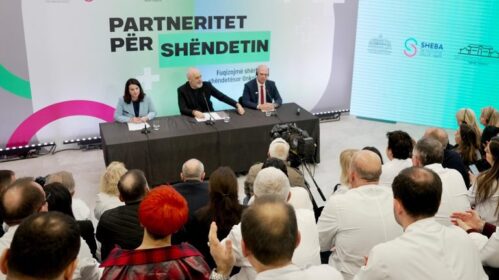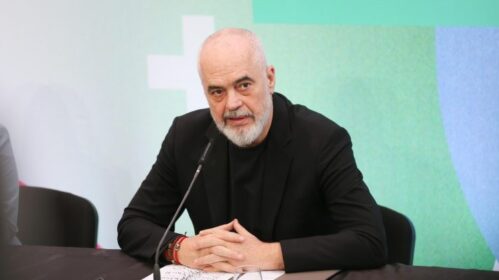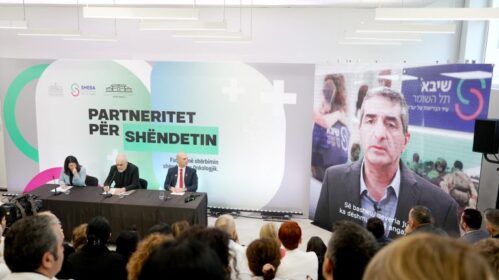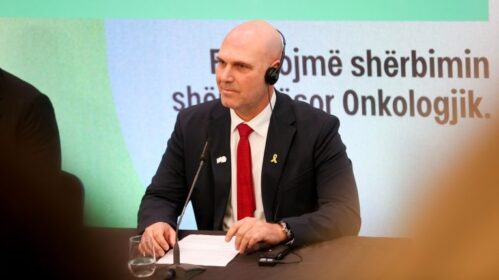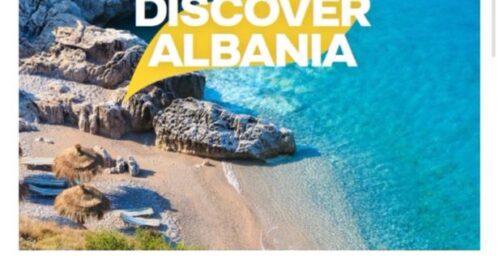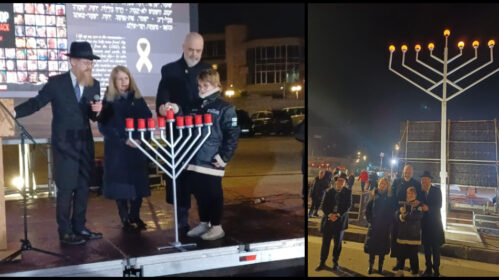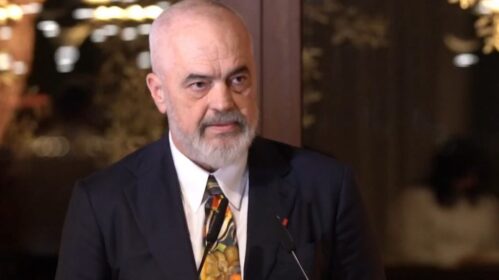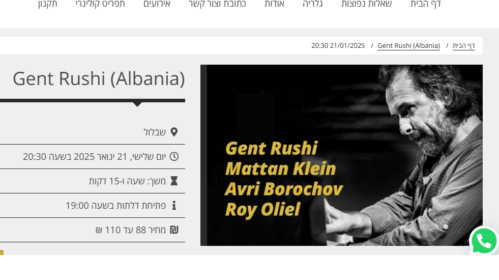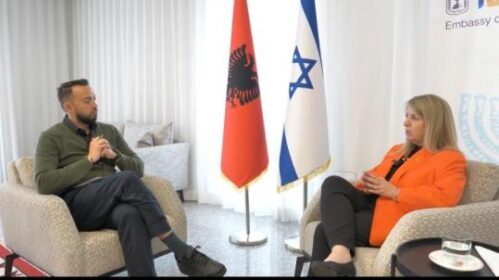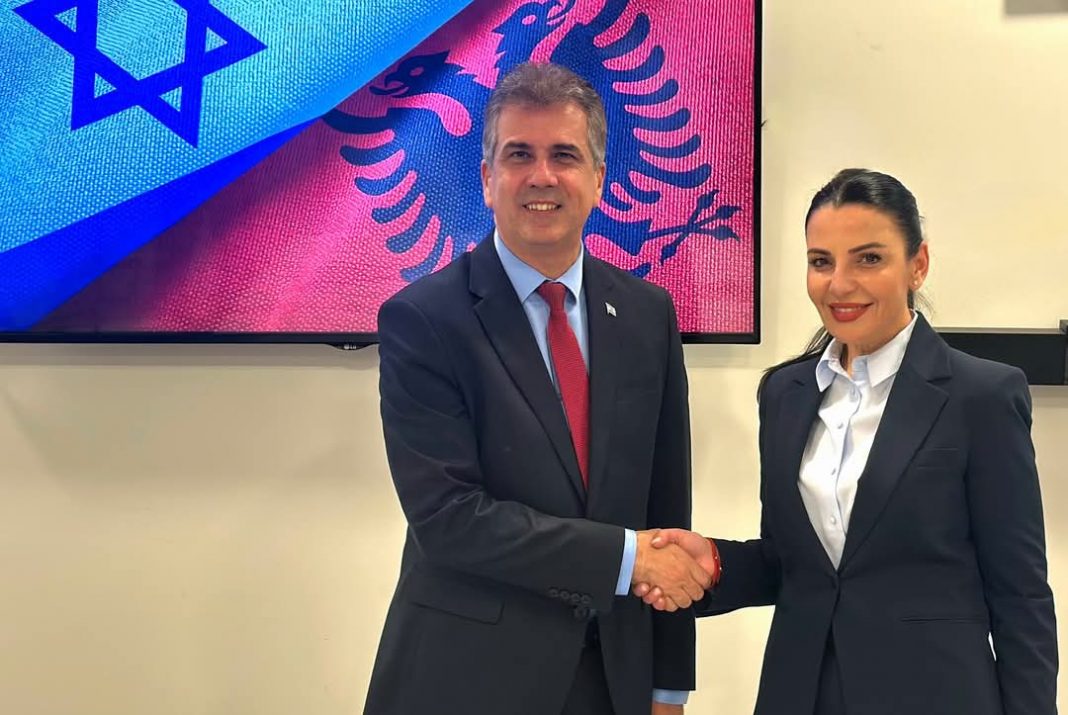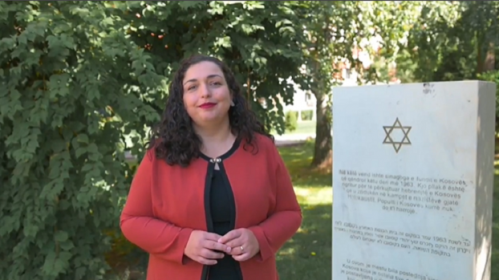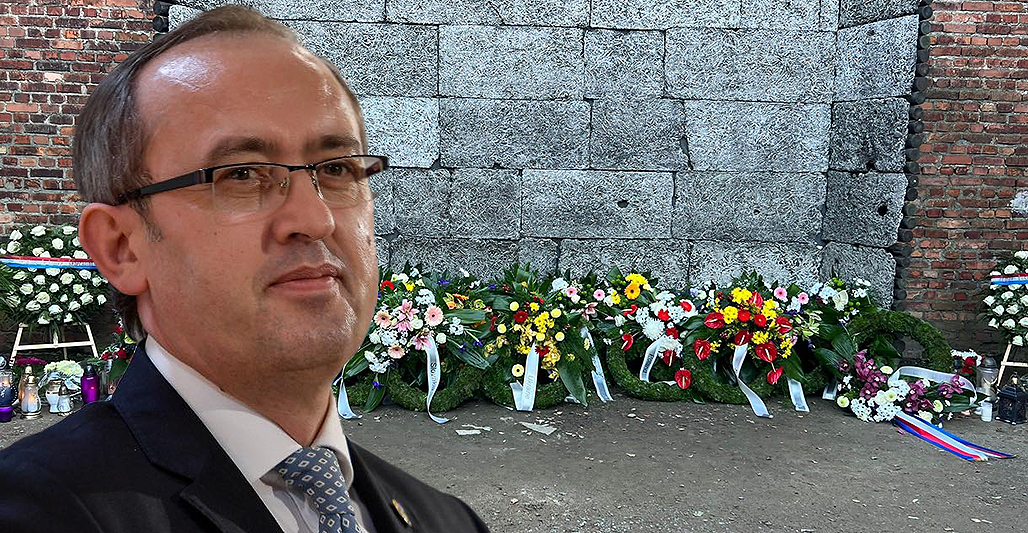By Heba Aly, Contributor
Fritzi Weitzmann Owens came from a “cultured city.” So in 1938, when Hitler’s invasion of Austria forced her to flee her native Vienna, Albania – “a backwards country,” as far as she was concerned – wasn’t her family’s first choice.
But few places in Europe were willing to accept Jews, and the United States had a quota system. Albania, one of Europe’s least developed countries, became her family’s refuge. Offered visas by King Zog himself, the Weitzmanns spent four months in Albania before finally getting papers for the US.
They lived in a “junk pile” hotel with no running water, but the king – an old friend of her father’s – helped them establish a photography business and the locals brought them homemade cakes.
“I feel that we were very lucky because without this little part of history, we would have died,” Mrs. Weitzmann Owens says from her home in New York City. “We are grateful every single day.”
She is one of thousands of Jews to have been saved from the Holocaust through Albania, Europe’s only Muslim country at the time. Amid better-known tales, such as “Schindler’s List,” this instance of Jewish rescue went largely unknown for decades because of a postwar dictatorial communist regime that left Albania’s borders closed to the world. Today, a growing body of research is finally shining a spotlight on this story of hospitality, sacrifice, and religious harmony.
Census information shows that in 1931, there were 200 Jews living in Albania. According to some estimates, that number was 10 or 15 times higher after the war.
Canadian-Albanian Saimir Lojlia has produced what might be the most comprehensive list of Jews saved in Albania – according to his count: 3,160. An engineer by trade, Mr. Lojlia has spent years digging through archived documents, photographs, and objects, and has edited several books on the rescue of Jews in Albania. He says there is no evidence of a single Jew being killed or handed over to the Nazis there.
“It is the greatest untold story,” he says, getting slightly emotional. “This is the only country in Europe [where] all Jews were saved…. The only country.”
What is fundamentally different about the Albanian story, says Randi Winter, a Jewish writer who has helped document these stories of rescue, is that Jews weren’t rescued in secret by the exceptional good person. Entire villages knew about Jews in their midst, and no one turned them in.
“They didn’t save them in a way that we think of when we see these Holocaust films. They were not in sewers,” Ms. Winter says.
In many cases, the Albanian government was directly involved in rescuing Jews. Apart from giving visas to Jews when no other country would, government officials refused to hand over lists of Jews to the Nazis, according to Harvey Sarner, author of “Rescue in Albania.” Government documents show that negotiations took place with German commanders for the release of arrested Jews.
But Mr. Sarner points out that the picture wasn’t completely rosy. The Albanian government did adopt anti-Jewish regulations in 1938-39, before the Italian occupation of Albania, though it appeared not to enforce them. And in the annexed territory of Kosovo, Jews were gathered into areas surrounded by barbed-wire fences (though they still went to the cinema, watched football games, and celebrated Jewish holidays). He recounts one case in Kosovo in which a group of Jews was transported out of the territory and killed. But Sarner argues that even there, the Jewish survival rate was much higher than in most other countries.
An anomaly in Europe, Albania – now largely secular – is still a traditional society where, in many parts of the country, turkeys run wild on streets, bicycle-led carts double as taxis, and blood feuds take place. Entrenched in Albanian culture is an ancient social protocol called the Kanun. Dating back to the 15th century, it was passed down orally until it was finally codified in the first half of the 20th century.
According to the Kanun, an Albanian’s home is first the home of God, and second, the home of the guest. Among the fundamental elements of the code is the concept of besa – a moral pledge to keep one’s word and uphold one’s honor.
This sense of duty is what drove impoverished Albanians to take in Austro-Hungarians after they capitulated in 1917, to shelter their former Italian occupiers after they switched sides during World War II, to welcome Albanian Kosovars in the late 1990s… and to take in Jews during World War II.
Scarlett Epstein remembers going from embassy to embassy in 1938, shopping for a visa, but limited by an Austrian passport that featured a big “J.”
“Everyone slammed the door in my face when they saw my passport,” she says from Britain, where she now lives. But at the Albanian embassy, “I got quite a different reception.” She got the Albanian visa on the spot.
Johanna Neumann and her mother were sheltered in the Pilku family’s home during the Nazi occupation. One day, a German officer visited the home and, unaware of her mother’s identity, told her: “If I was ever confronted with a communist or a Jew, I would kill them on the spot.” (She lived to tell the story.) A painting of the main mosque in the Albanian capital, Tirana, now hangs on Mrs. Neumann’s Maryland dining-room wall.
Other Jews were given Muslim names and dressed in hijabs to hide their identities. Many of them maintain relationships with their rescuers to this day.
This Albanian hospitality is referred to in the title of a book called “Besa: Muslims Who Saved Jews in World War II,” by American photographer Norman Gershman, who traveled to remote parts of Albania to document the stories of rescuers while they were still alive. The result is a series of portraits that have toured the world, including Israel, the United Nations, and the US.
Among the portraits is that of Haxhi Dede Reshat Bardhi, head of the Muslim Bektashi order in Albania. In the photograph, his eyes relay a combination of softness and conviction, and his right hand rests over his heart, at the edge of his long white beard. Mr. Gershman cites him as saying that then-Prime Minister Mehdi Frasheri – who was also Bektashi – gave his people an order during Nazi occupation: “All Jewish children will sleep with your children; all will eat the same food; all will live as one family.”
The concept of “stranger” doesn’t exist in Albanian culture, Winter explains, as she strolls through an exhibit of Gershman’s portraits on display at Simon Fraser University in Vancouver, British Columbia. Instead, a foreigner is considered a “guest.”
“What a different world we would be living in today if you saw someone coming to you in need … and instead of closing our doors, looking through our peephole, and pretending we’re not there in fear, we rushed out and said, ‘A guest! An opportunity to be hospitable; an opportunity to stand tall; and an opportunity to do good.’ ”
“Why did we do it?” asks Nadire Proseku, an Albanian who sheltered three Jewish refugees in her home for a year, in an interview with Gershman. “We saw the Jews as brothers. As religious but liberal Muslims, we were only doing our duty.”
Today, the Albanian example – one that, according to engineer Lojlia, “reflects what a society can be at its best” – is being used to teach religious harmony and to remind people of the symbiosis that has historically existed between Muslims and Jews.
Gershman’s portraits are currently on display at the Soho Photo Gallery in New York until Jan. 29 and will be at the House of Commons in London later in the month.
With funding from both a Saudi prince and Steven Spielberg’s Righteous Persons Foundation, JWM Productions is hoping to release its feature film about Muslims who saved Jews during the Holocaust in September, on the anniversary of 9/11, in theaters across the US. And the Queensborough Community College in New York is currently turning the information into lesson plans that it hopes will be used in schools across the country.
“I always wanted to share the story because it’s like a miracle,” says Weitzmann Owens, whose rescuer’s son is among those photographed. “Those were very good people. And it should be publicized.”
https://www.csmonitor.com/The-Culture/Arts/2011/0131/Albania-s-untold-story





